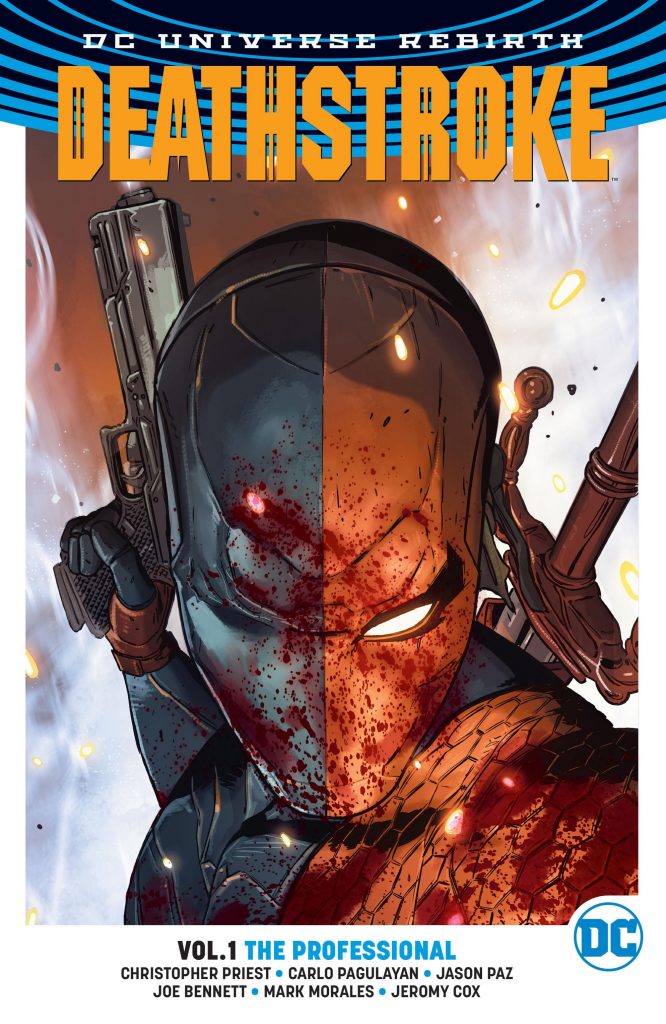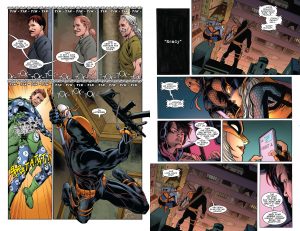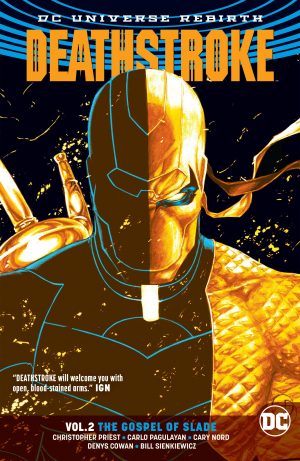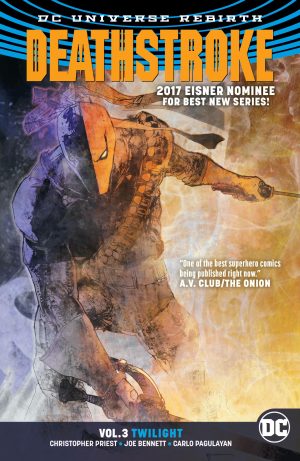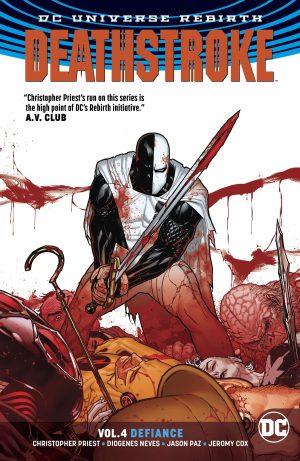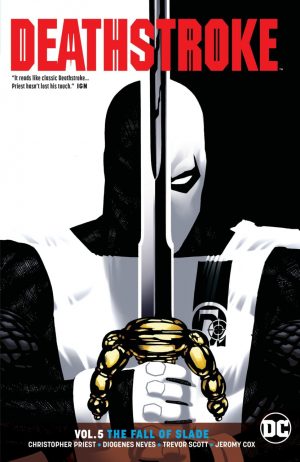Review by Frank Plowright
It’s apparent from the early pages of The Professional that Christopher Priest is throwing this reboot of DC’s premiere assassin in at the deep end of murky real world politics. Who’s good, who’s worthwhile and who counts is ranked on some flawed scale of priorities incorporating skin colour, religion and social standing. To some readers this will seem provocative, to others it will be a skewed and exaggerated reflection of their lives. However, that’s just the background Slade Wilson operates in. He’s a mercenary gifted with superhuman reflexes, co-ordination and rapid healing. Priest establishes that along with the relationship between Wilson and Billy Wintergreen, delving into their pasts shared carrying out dangerous missions in some of the world’s grimmest regimes.
Priest doesn’t give up these revelations easily. The past informs the present, and he shifts between both dropping hints here, clues there and mixing allies and enemies as we learn who people were and what they’ve become, and how injuries were acquired. An already superbly conditioned mercenary becomes something more when wearing a particular suit, and how he loses his eye isn’t your everyday domestic dispute. This is via storytelling that takes some notable experimental shifts, all of which is far more than might be expected from what, after all, is DC’s answer to the Punisher. An example would be a sequence set in Gotham. In any other superhero graphic novel, and this retains many superhero trappings, Batman’s appearance would be a few panels after Gotham was first mentioned, but Priest constructs an elaborate game of cat and mouse plotted in micro-detail and related in hindsight. It’s accompanied by a few pages of a dog nosing around the trashcans on the kerbside. Not everyone’s going to appreciate the tease, but it’s not over-extended, and leads into what’s far from a regular Batman guest appearance, more a philosophical exchange.
Carlo Pagulayan and Joe Bennett split the pencilling 50/50, with Larry Hama laying out one of Pagulayan’s chapters. The approaches of both primary artists complement the script, Bennett applying a refined superhero style, while Pagulayan on the opening chapters is more illustrative, but either method looks fine.
By the end of The Professional we’ve learned much about Deathstroke, but very little of it is via his own dialogue. He’s assessed by others and we’re left to make up our own minds about which of them has him bang to rights. If any. This is professional sleight of hand, clever and considered, with more to be found in The Gospel of Slade. Alternatively, Deathstroke by Christopher Priest collects the entirety of Priest’s impressive run in hardcover.
